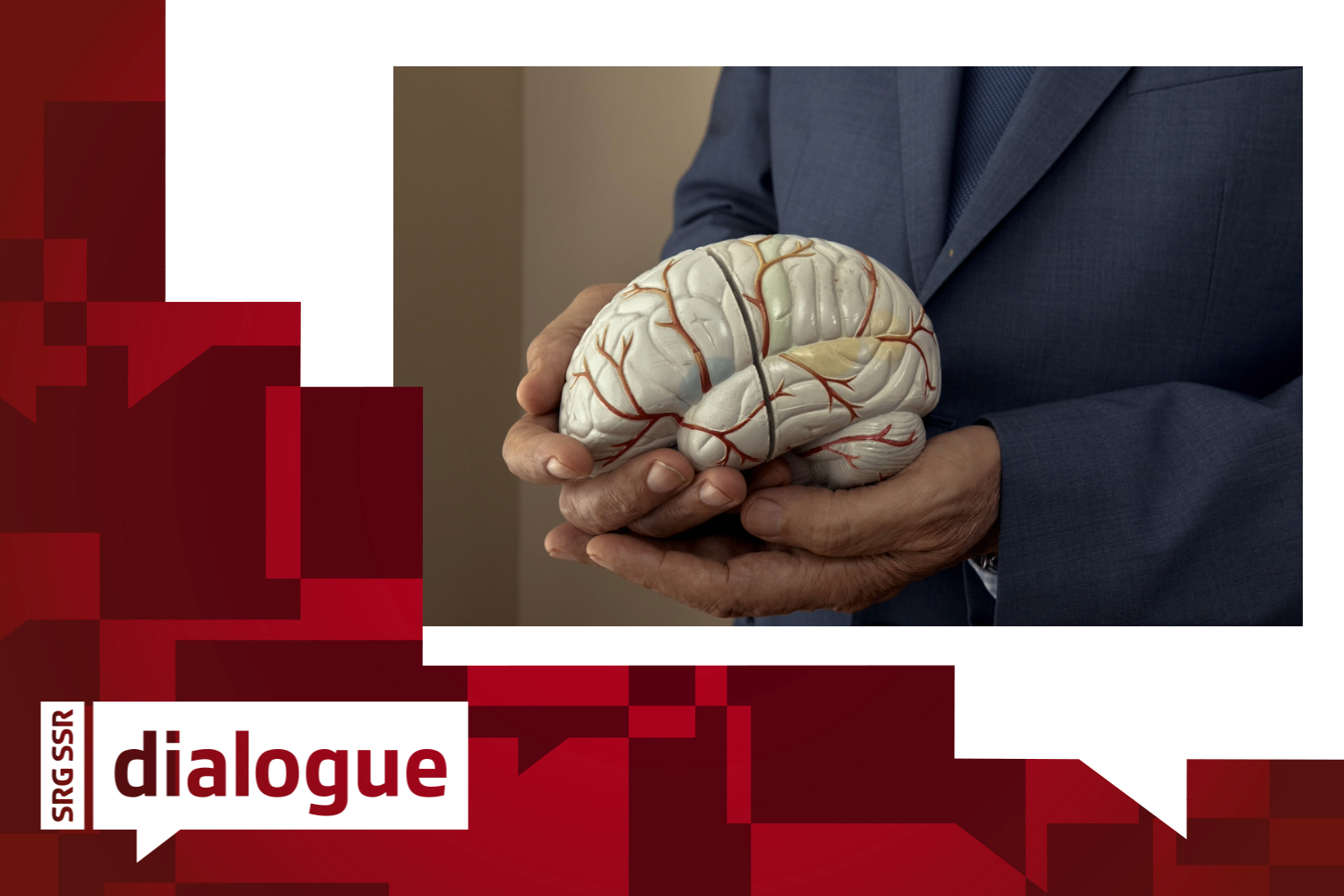Is Switzerland in a mental health crisis?

Mental health has shifted more into focus in Switzerland, especially since the Covid pandemic, and the latest figures confirm an increase in mental illness. However, is it correct to use the term crisis in this context? And if so, what can be done about it? Read up on the issue and join the discussion on our debate platform "dialogue".
The latest health surveyExternal link by the Federal Statistical Office, which has been conducted every five years since 1992 and is the largest study on general health in Switzerland, was published last November. The data was collected in 2022, with around 22,000 people participating.
One figure in this report is especially alarming: 29% of young women between the ages of 15 and 24 are suffering from mental distress. In comparison, in the previous survey in 2017 this figure was 19%.
This deterioration in mental health in Switzerland also raised concern within the “dialogue”-community. “Dialogue” is a debate platform provided by the Swiss Broadcasting Corporation (SBC), SWI swissinfo.ch’s parent company. When one user suggested a question for a debate on the topic, the community approved.
Share your opinion and join the discussion on “dialogue”:
More than two million relatives in the role of carer
As a result of the general state of mental health, more than two million Swiss people have at least once taken on the role of a caring relative for a person with a mental illness. This is shown in a studyExternal link conducted by the Sotomo Institute in March.
According to the study, this support is very important for people with mental illness. Without it, most of them would be dependent on additional professional help.
Therapeutic AI
As therapy places are scarce, young people sometimes turn to artificial intelligence (AI) for help. More and more of them are using “therapeutic” AI in the form of an internet chatbot or a smartphone app.
Although these technologies have advantages, there is a risk of incorrect treatment, as this report by Swiss public television, RTS, shows.
The difficulty of talking about mental health
Today, we are quick to talk about our “inner child”, notice “narcissistic traits” or are “depressed” instead of in a bad mood. So-called “therapeutic language”, which has been shaped by decades of psychological discoveries and progress, is seeping from therapy rooms into our everyday language and into public discourse.
The podcast “100 Sekunden Wissen” by Swiss public radio, SRF, takes a closer look at why the term “trauma” is being used more and more frequently nowadays and what the consequences may be.
Answer the following questions and compare your views with people from all across Switzerland and the Swiss Abroad:
Adapted from French by Claire Micallef

In compliance with the JTI standards
More: SWI swissinfo.ch certified by the Journalism Trust Initiative





You can find an overview of ongoing debates with our journalists here . Please join us!
If you want to start a conversation about a topic raised in this article or want to report factual errors, email us at english@swissinfo.ch.